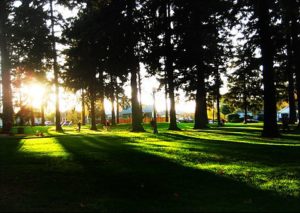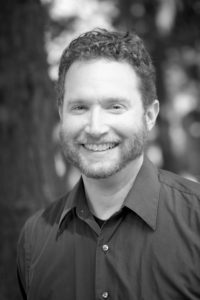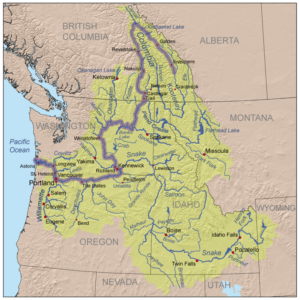We seek wisdom from the trees
From the stories of Jesus, of you and of me
We seek wisdom from the bees
From the practice of Sabbath, Shalom, and JubileeThis is life, sacred life,
And I want to be alive for it,
I want to be alive!-Solveig Nilsen-Goodin
Just a few days after we moved into our new home in southeast Portland in snowy cold mid-December 2016, we were unofficially house-warmed by several handfuls of new visitors. The Wilderness Way Community was gathering for our monthly Sabbath hike, which this year is taking place each third Sunday at Powell Butte Nature Park. The trailhead is a block from our front door. We were worn out due to our move and our late-term pregnancy, but Sarah and I sent our four-year-old son, who rode through the snowy woods on someone’s shoulders.
On most Sunday afternoons, we are gathering in the sunroom of the Leaven Community in northeast Portland, Oregon. We’re singing “Done Made my Vow to the Lord,” or “God Let us Be Free,” or “We Are Ready/Manna Rebirth,” or another one of our favorites. We’re kneeling and washing our faces in a shallow ceramic basin, sluicing off the weeks we’ve had, blessing ourselves with water and preparing to enter the wilderness together. We divide into pairs for ten-minute one-to-one check-ins. We gather again to share stories about the skills of loving, anecdotes from our lives about how we’ve attempted — and succeeded or struggled or failed — to practice unconditional love in the last week.
Depending on which Sunday, next up might be a someone’s money or spiritual or nature autobiography. Or it might be Liberation Bible Study. Or it might be “Gettin’ After It” Sunday, where we go deep about how it’s going with our shared practices of Sabbath, Shalom, and Jubilee.
 Across the street, the greenness of Alberta Park shines at us. Through windows, through the trees, on any given Sunday I see my son Daniel’s bright clothes as he climbs and balances on a mossy stone wall with other kids. He in the Wilderness Way Community’s Children’s School, learning core stories of Christian faith while also learning to build fires, track the turning of the elemental and liturgical seasons, and play in ways that channels aggression and stays emotionally connected with other kids.
Across the street, the greenness of Alberta Park shines at us. Through windows, through the trees, on any given Sunday I see my son Daniel’s bright clothes as he climbs and balances on a mossy stone wall with other kids. He in the Wilderness Way Community’s Children’s School, learning core stories of Christian faith while also learning to build fires, track the turning of the elemental and liturgical seasons, and play in ways that channels aggression and stays emotionally connected with other kids.
Wilderness Way exists to ground and cultivate “wild” Christian disciples and fearless spiritual leaders, rooted in the natural world and the prophetic Christian tradition, offering our lives for the transformation of our culture and economy into one that Jesus might recognize as what he called the Kingdom of God, what we might call the Ecosystem of God.
– from the Wilderness Way Mission Statement
Since 2009, my family has participated in the Wilderness Way Community. Wilderness Way was founded with a clear focus on developing spiritual leaders who are ready and able to respond to our times. This process of leadership development isn’t one size fits all, as each is on a personal journey. Some in Wilderness Way are rediscovering a faith damaged by the churches of their childhoods – having been treated as less than, for being women or queer or just different. Some are learning to teach the radical stream of the Bible, focused on the “least of these” and the Exodus escape from oppression into God’s new pattern of relying on manna as we journey together. Some are learning and teaching permaculture. Some are learning to release power and privilege and enter into the fullness of community. We are community organizers, counselors, pastors, teachers, medical professionals, students, retirees. We are on the Wilderness Way together.
In 2016 we celebrated the community’s tenth anniversary. As a part of that celebration, we collectively wrote a book – mostly through the labors of our pastor/organizer Solveig Nilsen-Goodin. Here’s a little more, from What Is the Way of the Wilderness?: An Introduction to the Wilderness Way Community.
“At Wilderness Way we come together to open up an alternative space within the context of the American empire—a bastion of global capitalism and neocolonialism. We come together to imagine this alternative space as a “wilderness” space, a space in which we can push back the logic of empire and find power in community to imagine and create a new reality; a space in which we can be formed and transformed, forgiven and challenged, untamed and undomesticated. The wilderness motif runs deep through the whole of scripture. In this motif we discover that at its core, wilderness refers to the places that empire has not been able to control. This is why prophets often come out of the wilderness, and why people seeking liberation from empire go into the wilderness.
Two of the many biblical wilderness stories that shape our imagination are the 40-year Exodus journey of liberation in the wilderness, and Jesus’ 40-day wilderness preparation to fulfill his baptismal call. The Exodus journey of liberation is a powerful prototypical story of a community seeking and attaining its own liberation and then having the dual blessing and challenge of unlearning the worldview of empire and slavery, and reimagining a way of life in harmony with the God of creation and liberation. Carving out “wilderness” spaces invites us also to unlearn the distorted worldviews that have shaped us and to reimagine life in harmony with the God of creation and liberation. In the same way, Jesus’ 40-day wilderness sojourn invites us to take our own call to spiritual leadership seriously.
Wilderness, however, is not simply a metaphor or a motif, an imaginative place or space. Every biblical story and every imaginative “wilderness” space we create takes place somewhere: In a particular ecosystem with its particular flora and fauna. In a particular watershed with its particular story of humans and their relationships to the land. In a particular bioregion with its particular history of human interactions, both harmonious and hostile, benevolent and brutal. Wilderness Way, for example, which finds its home in the Willamette and Columbia River watersheds, currently meets just miles from a portion of the Willamette River declared a Superfund site. This land, once a vibrant trading area for indigenous peoples, was ceded in 1855 by the Kalapuya, Molala, Clackamas and other peoples only after violence and epidemics had devastated over 95 percent of their populations.
Without an intimate connection with place, we easily spiritualize or see only the metaphoric meaning of a thing. For example, when Jesus compels his listeners to pay attention to the birds of the air and the flowers of the field, he calls them not to a greeting-card moment but rather to a radical teaching on how God’s intended economy functions. Or how often, for example, do we hear the biblical phrase “living water” solely as metaphor while toxins flow unimpeded into water in countless rivers and oceans, poisoning the water that is the source and substance of life for us and myriad plants and animals—literally, our living water? Wilderness, therefore, also calls our attention to the earth, the land, the waters, the ecosystems, the biosphere in which we live, imploring us to learn their wisdom, their stories and the ways they have been impacted by empire. The climate crisis facing humanity reveals how deeply so many of us are disconnected from the ecosystems in which we live. Wilderness Way understands that reconnecting with the earth and earth’s stories, with wilderness and our own wildness, is not only essential for our healing and survival, it is inevitable for those who seek to follow in the way of Jesus and the untamable, undomesticatable God of Life. The breadth and depth of these meanings of wilderness have revealed to us what we call the Wilderness Way: the way of Sabbath, Jubilee and Shalom.
 The Wilderness Way Community is a Synodically Authorized Worshipping Community of the Oregon Synod of the Evangelical Lutheran Church in America. Matt Guynn has been actively involved with WWC, including anchoring Liberation Bible Study for several years and serving on the Wilderness Way Council. Guynn is program director for nonviolent social change with On Earth Peace. He is an alumnus of Manchester University (1995, B.A. Peace Studies), the University of Notre Dame (1996, M.A. International Peace Studies), and Bethany Theological Seminary (2003, M.A. Theology). His M.A. thesis at Bethany was “Re-enchantment: Theology, Poetics, and Social Change.”
The Wilderness Way Community is a Synodically Authorized Worshipping Community of the Oregon Synod of the Evangelical Lutheran Church in America. Matt Guynn has been actively involved with WWC, including anchoring Liberation Bible Study for several years and serving on the Wilderness Way Council. Guynn is program director for nonviolent social change with On Earth Peace. He is an alumnus of Manchester University (1995, B.A. Peace Studies), the University of Notre Dame (1996, M.A. International Peace Studies), and Bethany Theological Seminary (2003, M.A. Theology). His M.A. thesis at Bethany was “Re-enchantment: Theology, Poetics, and Social Change.”
Image Credits: Kmusser, Wikimedia, and Wilderness Way


